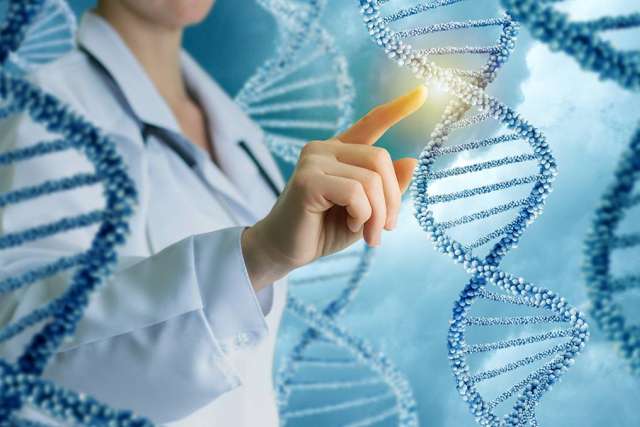COVID-19 affects different people in strikingly different ways. Some experience symptoms such as loss of taste or smell, fever, coughing, digestive problems and potentially life-threatening respiratory issues; others show no symptoms at all.
“We have limited ability to predict how sick a specific individual will get,” says Daniel H. Geschwind, MD, PhD, MacDonald Distinguished Professor in Human Genetics at the David Geffen School of Medicine at UCLA and member of the Eli and Edythe Broad Center of Regenerative Medicine and Stem Cell Research at UCLA.
While the elderly and people with certain pre-existing conditions including heart and lung disease are more likely to get sick, not all people who meet these criteria and are exposed to the virus develop COVID-19. Likewise, there are new cases every day of young adults with no known pre-existing conditions who end up with severe symptoms.
This poses a perplexing question: if not overall health, what is it that separates the people who have no symptoms from those who develop the serious disease?
Dr. Geschwind and his colleagues Manish Butte, MD, PhD, and Bogdan Pasaniuc, PhD, believe that at least part of the answer to this mystery is in our genes.
Together, they’ve launched a program with the five other UC Health System campuses to collect and analyze the genetic data of hundreds of COVID-19 patients from diverse backgrounds. Using computational and statistical methods, they’re working to identify the genetic factors associated with protection from and susceptibility to the virus as well as the factors that are linked with the infection’s most devastating symptoms.
“There are two ways of looking at the genomes of COVID-19 patients,” says Dr. Pasaniuc, associate professor of pathology and laboratory medicine, human genetics and computational medicine. “We can look at the genome of one individual and ask, ‘Can we learn something about why this one young, healthy person got so sick?’ Or, we can look at the whole picture of data collected from people around the world and look for one commonality — say a single gene disruption — that is shared among all the people who are getting extremely sick.”
The answers that come out of this research might enable clinicians to identify individuals as being at high or low risk of infection and develop new strategies for prevention and treatment. The findings could also one day give researchers the tools to formulate a patient’s treatment plan based on their genetic risks.
To maximize their impact, the group is assimilating their data into two groups: the COVID Human Genetic Effort and the COVID-19 Host Genetics Initiative, which bring together whole genome sequencing data from more than 150 COVID-19 studies worldwide.
“The amazing thing that is happening right now is that everyone is sharing their data as openly and as quickly as they can,” says Dr. Butte, holder of the E. Richard Stiehm Endowed Chair in Pediatric Allergy, Immunology and Rheumatology and chief of the Division of Allergy, Immunology and Rheumatology. “What we are doing is not just going to help the millions of patients who are part of the UCLA Health system; it will affect the whole world.”
Scientists have learned that it is less the virus itself that is causing the deaths of COVID-19-infected patients than it is the body’s response to it. “Some viruses, like Ebola and measles, are very cytopathic or cytolytic, meaning they destroy the host’s tissues,” Dr. Butte says. “SARS-CoV-2 is only mildly cytolytic. When people die of COVID-19, they mostly die because their immune system became hyperactivated.”
This hyperactive immune response can damage the lungs, heart and kidneys and lead to clotting disorders and even stroke. For this reason, the research is not just to understand who is susceptible to becoming sick; it also is to identify what genetic mechanisms in some people's immune systems are allowing this deadly immune response. "With this information, we could look at a patient's genetic data and then warn their physician that they need to watch out for a hyperactive immune response, and maybe administer a treatment to prevent this from happening," Dr. Geschwind says.
Though their backgrounds are quite different — Dr. Geschwind is a developmental neurobiologist, neurologist and geneticist, Dr. Pasaniuc is a computer scientist and Dr. Butte is an immunologist — the researchers were brought together by their shared belief that genetics could be a key to finding better approaches to the pandemic. “We each came to realize that you have to dive into the genetics to understand why our patients are getting sick,” Dr. Butte says. “This genetic study of patients with COVID is such a great opportunity for us. We’re finding new ways to take better care of patients and grapple with a challenging medical mystery.”





